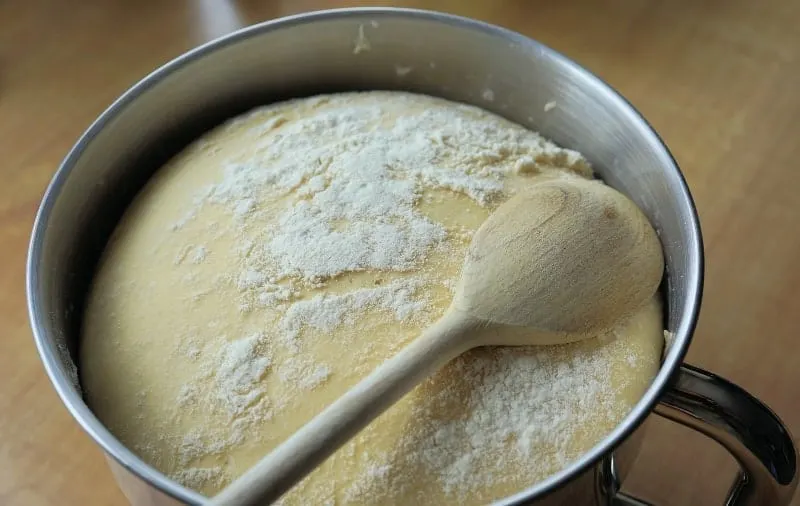The type of bowl a person uses to proof their dough varies from person-to-person, so everyone has their own opinion on what’s best.
Since there are plenty of bowls made from all different kinds of materials, it might make you wonder whether one material bowl is better than any other for proofing.
So, what type of bowl is best for rising dough?
Plastic and stainless steel bowls retain heat the best and allow for a slightly faster proof whilst tall plastic dough-rising buckets are best for knowing when the dough has doubled in size. Remember that dough will be able to rise in plastic, stainless steel, ceramic, glass, or even wooden bowls.
With that said, it doesn’t really matter a huge deal about what kind of material bowl you’re using. As long as it’s food-grade, it’s perfectly safe and your dough will rise just fine.
There are some minor discrepancies between each material, but these are only small and won’t have a substantial effect on how your dough turns out.
Can Dough Rise In A Mixer Bowl?
The easiest thing you can do when making dough in a mixer is to just leave it in the mixing bowl. It allows for less cleanup and it’s easier overall.
Dough can rise in your mixer bowl whether it’s stainless steel or glass. The two materials are both safe to use and contain the dough well. Make sure to cover the top tightly to prevent any airflow during proving.
Once the dough is fully kneaded, take it out and lightly oil the bowl before you put it back in to proof. This just makes sure that it doesn’t stick too badly.
It’s also very important that you keep the mixer bowl airtight. You’re risking the surface of the dough becoming tough and drying out if you don’t properly seal it.
Is It Safe To Rise Dough In Plastic?
Plastic is a pretty controversial topic when it comes to most things. Some say that it leaches into food and others say that it’s completely fine.
Although some plastics may present health issues, it’s important to know that food grade plastic bowls are safe.
Dough can safely rise in food-grade plastic, so there’s no need to worry about any of the plastic making its way into your bread. Nothing in the dough will react with the plastic. Make sure to keep the bowl away from high heat to prevent melting.
Many home bakers and professional bakers alike use plastic containers to proof their dough, so you should have no issues with it.
It’s great to have a dough-rising bucket container as you’ll be able to easily tell when your dough has doubled in size. It’s also great if you’re making large batches of dough since you can get the containers in all different sizes.
One problem you may face is extra sticking if the plastic is badly scratched, so try and use bowls/containers that are smooth and well-oiled before proofing your dough.
What Shouldn’t Dough Rise In?
You won’t find many kitchen bowls or containers that aren’t safe for dough to rise in, but there is one material that may be a problem.
Aluminum may react with certain types of dough depending on their acidity.
Dough that is more acidic than normal (sourdough) is more likely to react with an aluminum container.
Technically speaking, a lean dough with a neutral PH will be fine to rise in an aluminum bowl, but I prefer to avoid them anyway. Stick with something you know is safe and sturdy like glass or food-grade stainless steel.

